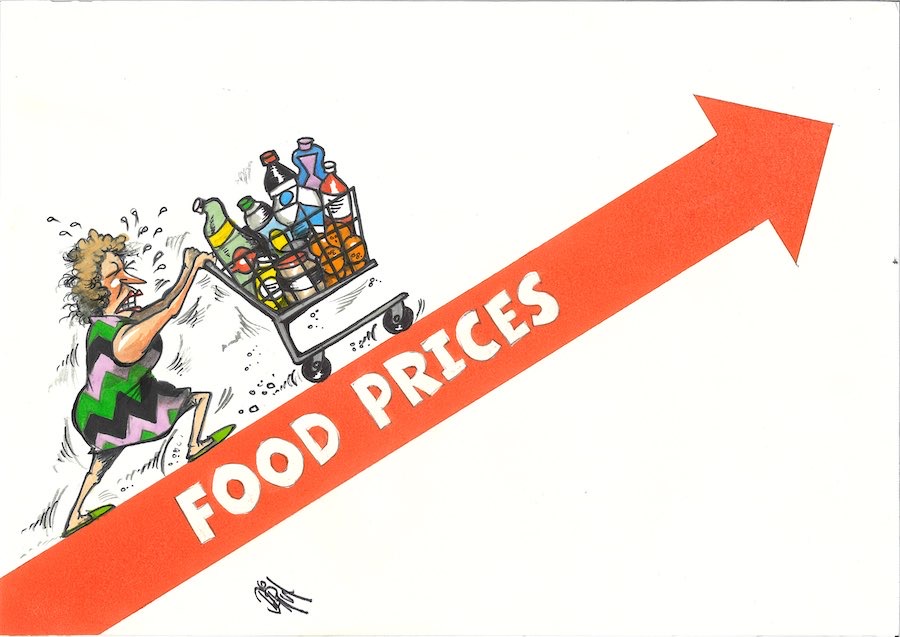Most unusually for an economic downturn, incomes rose throughout the quarter, pushed higher by a 6.2 per cent increase in government payments related to COVID-19 and the bushfires, and an 11.1 per cent increase in insurance payouts as a result of bushfires and hailstorms, writes PETER MARTIN.
A GO-slow on spending sent the economy backwards 0.3 per cent in the first three months of this year, only the fourth such decline since Australia was last in recession in the early 1990s.
Treasurer Josh Frydenberg says Treasury has told him the next three months, the June quarter that we are in at present, will see a “far more severe” contraction, one private sector forecasters believe could be as high as 10 per cent.
Asked whether that meant Australia was already in recession, he said it did.
Most unusually for an economic downturn, incomes rose throughout the quarter, pushed higher by a 6.2 per cent increase in government payments related to COVID-19 and the bushfires, and an 11.1 per cent increase in insurance payouts as a result of bushfires and hailstorms.
Household incomes even rose in per capita terms, by 0.1 per cent after abstracting for population growth.
But rather than spend more, Australian households dramatically increased saving in the quarter, pushing the household saving ratio up from 3.5 per cent to 5.5 per cent and pushing down household spending 0.2 per cent.
Spending on goods actually increased over the three months as Australians stocked up on essentials including toilet paper in March.
The production of “petroleum, coal, chemical and rubber products” surged 8.1 per cent as consumers stocked up on cleaning and disinfectant products.
But spending on services plummeted, led down by dramatic falls in spending on transport and hotels, cafes and restaurants.
Spending on transport services (airlines and the like) fell 12.0 per cent. Spending on hotels, cafes and restaurants fell 9.2 per cent, each the biggest fall on record.
“Production” in these industries fell 4.9 per cent and 7.5 per cent. Profits fell 6.8 per cent and 14.2 per cent.
Spending fell on ten of the 17 consumption categories.
Most of the changes took place at the very end of the March quarter.
A new index of the “stringency” of COVID-19 containment measures released with the national accounts shows these ramped up only in the final two weeks.
Most have been in place for the entirety of the June quarter to date, suggesting the impacts on spending and production will be a “lot more substantial”, in the words the treasurer used in the national accounts press conference.
Were it not for government spending, which has climbed 6.2 per cent throughout the year, the plunge in March-quarter GDP would have been much more severe.
Calculations of the Bureau of Statistics suggest it would have been twice as severe, a March quarter decline of 0.6 per cent rather than 0.3 per cent.
The treasurer described Australia as “on the edge of the cliff” in the March quarter, facing “an economist’s version of Armageddon”.
The treasury had been contemplating a fall in gross domestic product of 20 per cent in the June quarter. Australia has avoided that fate by acting on health and the economy early.
Its fall in GDP of 0.3 per cent in the March quarter was one-third the OECD average.
The treasurer has scheduled an economic update for July 23 which will include the result of a review of the JobKeeper program.
Asked whether it could be referred to as a mini-budget, he said it could be.
Peter Martin is a visiting fellow at ANU’s Crawford School of Public Policy. This article was originally published on The Conversation.
Who can be trusted?
In a world of spin and confusion, there’s never been a more important time to support independent journalism in Canberra.
If you trust our work online and want to enforce the power of independent voices, I invite you to make a small contribution.
Every dollar of support is invested back into our journalism to help keep citynews.com.au strong and free.
Thank you,
Ian Meikle, editor






Leave a Reply